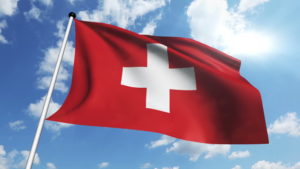
Bern, Switzerland, May 16, 2018/ — Switzerland expressed concerns ahead of the constitutional referendum in Burundi scheduled for 17 May and calls on all parties to resume dialogue in the spirit of the Arusha Accords.
The country said in a statement issued ahead of the referendum.
“The constitutional referendum, which is scheduled to take place on 17 May 2018, is being carried out in a climate of intimidation and political tension, and is marked by the absence of democratic debate between Burundi’s different social and political groups”.
While Switzerland recognises the country’s sovereignty over the conduct of its referendums and the proposed texts to be adopted, it regrets that the new constitution, which will be put to a referendum, was only made officially public at a very late stage.
Switzerland recalls the appeal by the African Union to “initiate all constitutional reforms via a broad national consensus among all relevant stakeholders.” It notes that the mediation process led by the East African Community is deadlocked and calls on all parties to show their willingness to resume dialogue.
The recent decision to ban VoA and BBC broadcasts, restrictions imposed on journalists, arbitrary arrests, harsh sentences for human rights defenders and current tightening of the Criminal Procedure Code signal an increasing weakening of fundamental freedoms in Burundi.
In this context, the implementation of the two resolutions adopted at the 36th session of the Human Rights Council in Geneva remains a political priority and Switzerland continues to be prepared to support the work of the two commissions involved in this.
Switzerland supported the negotiations for the Arusha Peace Agreement at the end of the civil war and calls on the Burundi authorities to respect the spirit and letter of the agreement, which has brought peace to the country and serves as an example to others.
Switzerland condemns the massacre of 26 people in Ruhagarika on Friday 11 May and extends its sympathies to the families of the victims. It calls on the authorities to carry out an independent investigation.
Switzerland remains committed to supporting the people of Burundi.
Rising tension
Highlighting the rising tension following a recent deadly attack on a village in Burundi that left 26 civilians dead, UN Human Rights Chief Zeid Ra’ad al Hussein on Tuesday expressed concern about a possible upsurge in violence during the run-up to Thursday’s controversial constitutional referendum.
Ten women and 11 children were among the victims of the attack by unidentified armed men on the village of Ruhamagara, in Cibitoke Province, some 60 kilometres north-west of Burundi’s capital Bujumbura at around 22:00 hours last Friday.
“There are very differing accounts of whom the attackers may have been, and what the motive was,” said Zeid. “It may have been political – designed to impact on the referendum – or it may have been carried out for other reasons, including revenge.
Local residents have reported the men wore military uniforms, but this does not necessarily indicate who they were. Either way, in this febrile atmosphere, it is a very dangerous development.
Burundi is awash with rumours, political negotiations are deadlocked, and tensions are rising sharply in the wake of this attack, with many dreading what may happen during and after Thursday’s referendum.”
Zeid took note of the authorities’ announcement that they are launching an investigation and urged them to ensure it is transparent and effective. He also expressed his condolences to the families of the victims of Friday’s attack on Ruhamagara.
“Because of the constant stream of violations over the past three years, and this extremely controversial and divisive referendum, the actions of the authorities are viewed with considerable mistrust by a sizeable segment of the population,” Zeid said. He noted that a significant number of opposition politicians and others calling for a ‘No’ vote have been targeted for arbitrary arrests and detention by security forces, sometimes with the assistance of the notorious Imbonerakure group which supports the Government.
“Everyone will suffer if Burundi explodes into violence during or after the referendum,” the UN Human rights Chief said. “I urge the Government to live up to its responsibilities to provide the people of Burundi with peace, security and a fully functioning democracy where everyone’s human rights are respected, and the rule of law is applied equally to all. It has very little time to turn this around. While the opposition has much to oppose, it must also avoid any actions that could add fuel to the fire.”
African Eye Report


